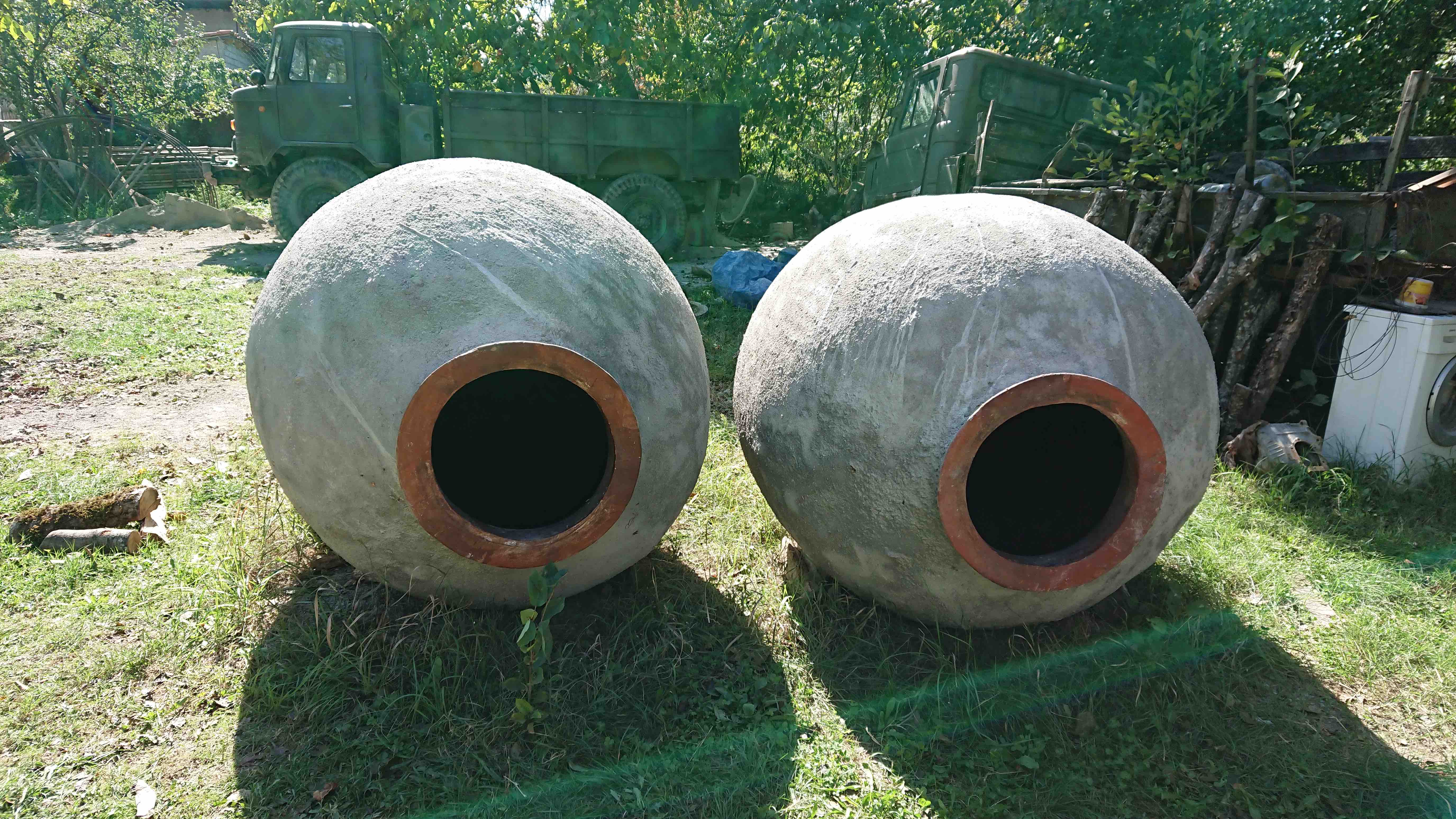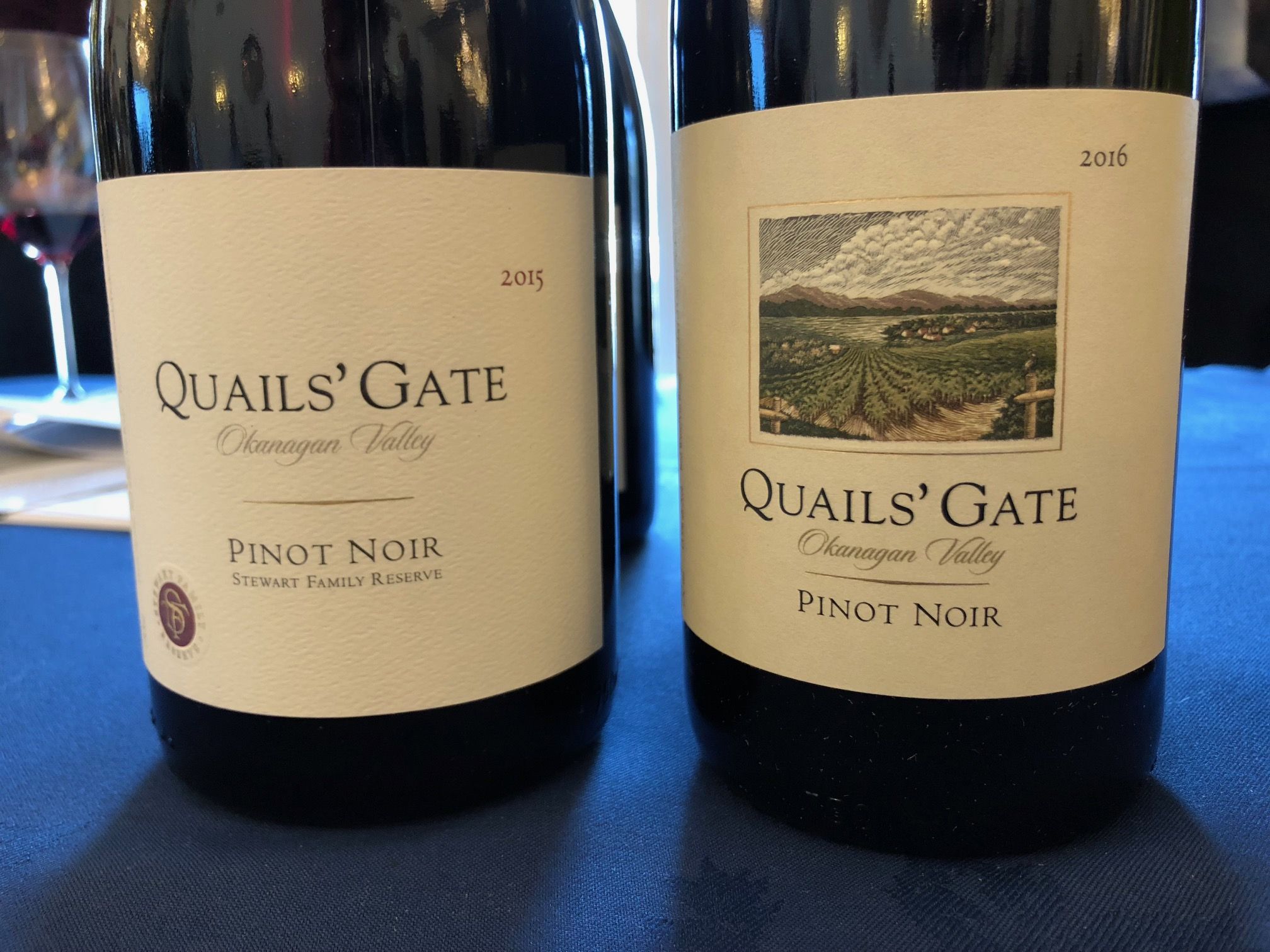A desire to shift away from supplying semi-sweet wines to Russia and instead focus on bottles for more mature markets is driving many wineries’ output in Georgia as you can discover at this month’s Georgian Wine trade tastings, starting on October 2 in London.
Standing in the mouth of the giant brick-lined oven at the foot of his garden, Zaza Kbilashvili is clearly a man who’s happy in his work. As he entertains a group of wine merchants, sommeliers and journalists with the help of guide and translator Maka Tarashvili, he extols the virtues of the qvervi, the clay vessels used for centuries by Georgians to ferment and age their wines.
Kbilashvili represents the fourth generation of his family to make qvervi. His father was only able to continue the tradition during the Soviet era because their village of Vardisubani was so remote, escaping interference from the state infrastructure, which wanted winemakers to shift to modern techniques to mass-produce semi-sweet wine for the Russian market.
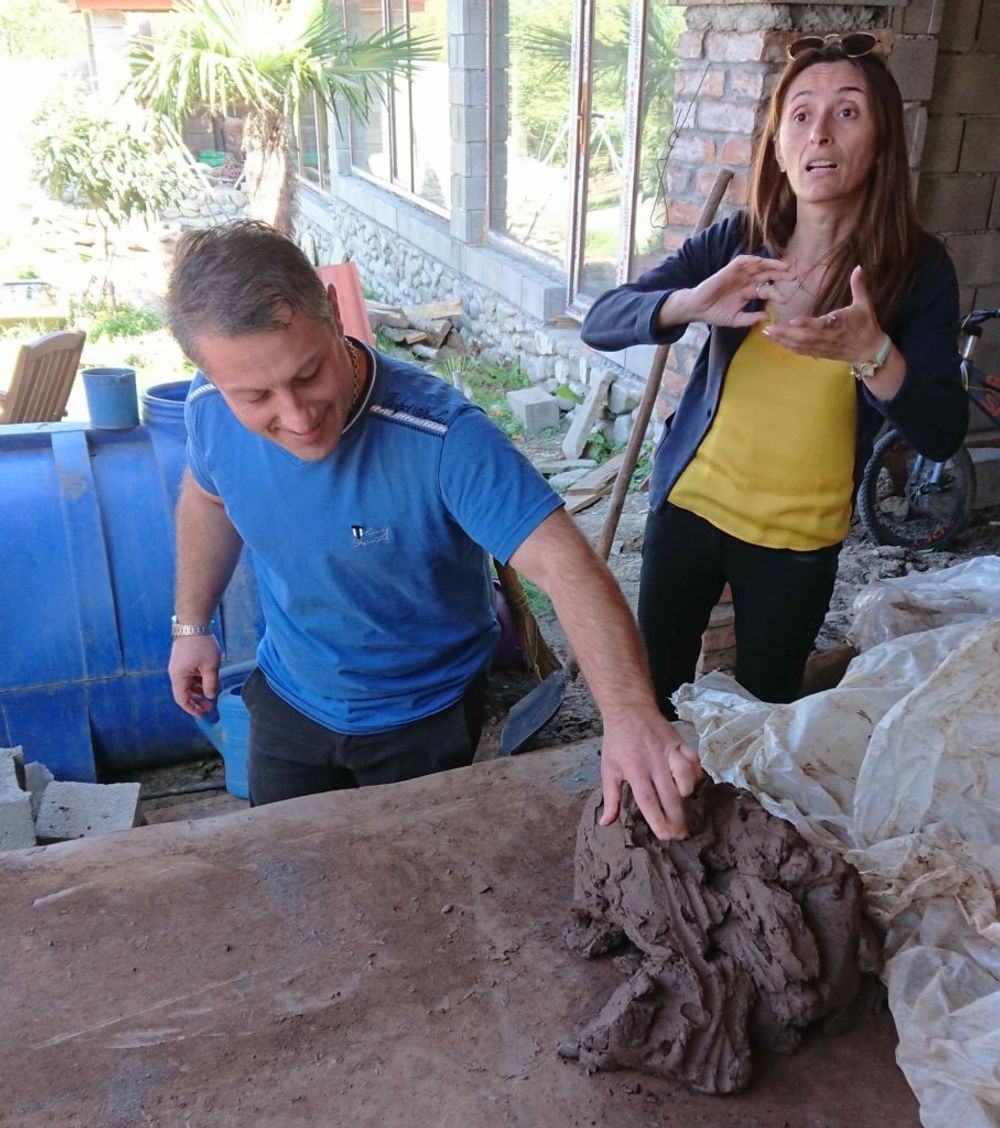
Translator, Maka Tarashvili, helps Georgian qvevri maker, Zaza Kbilashvili, explain how the ancient use of qvevris works so well for Georgian wine
Each qvervi takes about three months to produce, including time for the clay to dry before being fired in the oven, which can hold eight 3,000-litre vessels and can reach temperatures of up to 1,200⁰C. Qvervi makers like Kbilashvili can produce up to 50 each year, using clay from the local forests and beeswax from the army of beekeepers whose hives line the local roads.
As well as his clear pride in the clay vessels he produces, Kbilashvili has another reason to smile – there’s a two-year waiting list for wineries that want to buy his hand-crafted qvervi. Stories of long queues for the containers are told again and again by winemakers throughout the Kakheti region, which produces 70% of the country’s wine.
Companies including Chelti Winery, Tsinandali Estate and Teliani Valley are “planting” or burying more qvervi in their wineries to increase their output. While many producers use a combination of both qvervis and more modern stainless steel tanks and oak barrels across their ranges, the clay pots are still not only a key part of the production process but clearly also a source of national pride for a country that’s been making wine continuously for 8,000 years.
Branching out from Russia
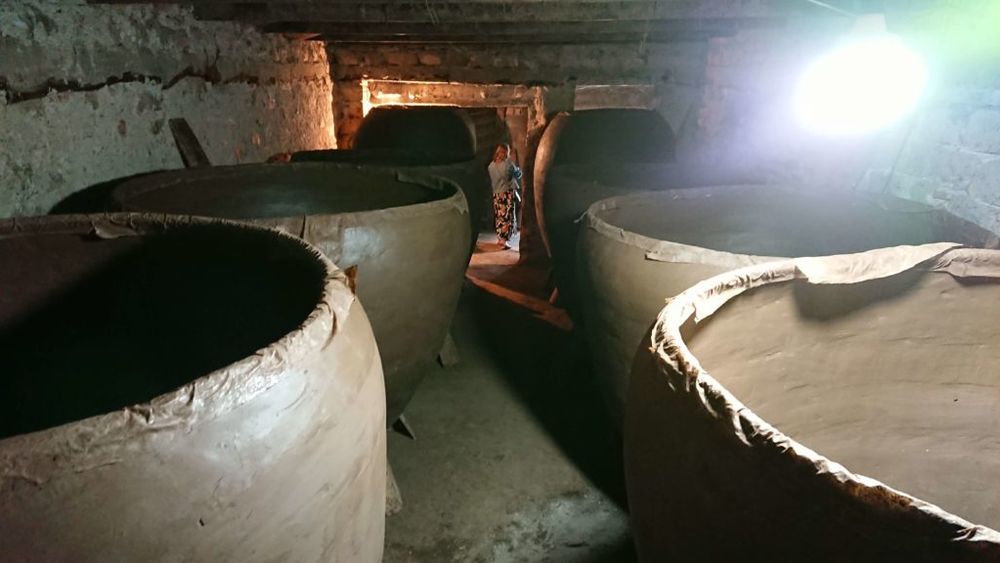
The size of the qvevris show how much skill is involved in making them
Today, Russia continues to be Georgia’s largest market for wine, with semi-sweet reds flowing across the border, accounting for 30 million bottles from the country’s 50 million export total. Yet qvervis sit at the heart of the expansion of the country’s quality wine sector, with sales to the UK in the first eight months of the year rising by 65% year-on-year to 80,000 bottles.
Part of that growth is due to increasing consumer interest in orange or amber wines, which are made by leaving the skins of white grapes in contact with their juice to impart colour. In Georgia, many winemakers leave the juice on its skins for around six months in their qvervi.
That interest in amber wines is poised to continue during this year’s Georgian Wine Festival, which runs during October and November in the UK. The festival kicks off on October 2 with a trade tasting and masterclass at SAMA Bankside in London, followed by a trade tasting at the Vin-yard wine bar in Manchester on 8 October, both of which are organised by Swirl Wine Group on behalf of the National Wine Agency of Georgia.
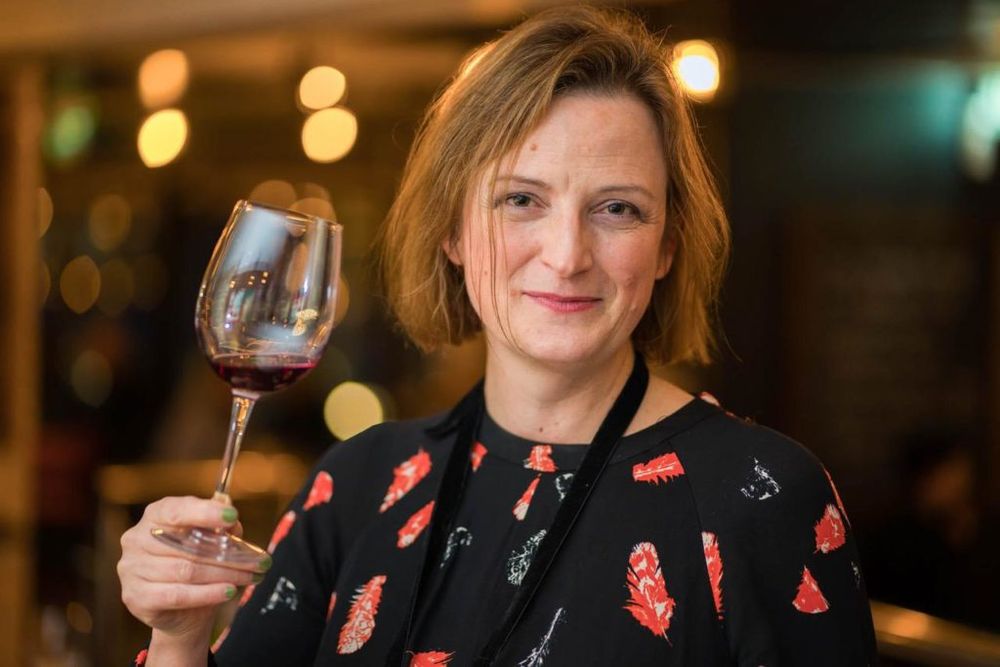
Sarah Abbott, MW, will be holding special masterclasses at the Georgian wine tasting this month
Five of Peter Ranscombe’s top wineries to watch at this week’s Wines of Georgia tasting in London:
Imported by Clark Foyster Wines, the winery is run by Giorgi Dakishvili, who grows his own Saperavi to make red wine and Rkatsiteli and Kisi to make white wines. His qvervi-aged Rkatsiteli is a highlight, with its jasmine and peach notes, but look out for his sparkling Saperavi rosé too, which spends 24 months on its lees to balance its fresh raspberry and redcurrant flavours.
Spending a few hours with American winemaker John Wurdeman at Vino Underground, a wine bar in Tbilisi that he co-owns, was one of the highlights of the trip. The freshness of his Tsolikouri white wine was outstanding, and I’d love to try his Poliphonia, which brings together 417 indigenous Georgian grape varieties and is imported by Les Caves de Pyrene.
Rkatsiteli was the star of the show for me among Matrobela’s wines, which are imported by Taste of Georgia. Its attractive aromas of honeysuckle, red apple skins and intense peach came from spending five months on its skins in a qvervi and a further nine months in stainless steel tanks.
Wondering round the grounds of Shumi’s winery feels a little like stepping into a holiday camp, with seats dotted around the garden in between a shop, eatery and wine museum. Away from the tourism, its wines are solid, with the papaya and lychee-laced Khikhvi white wine standing out from the crowd. Also imported by Taste of Georgia.
The balance between the concentrated black fruit flavours and the assertive yet well-integrated tannins in the 2014 vintage of KGM’s Mukuzani – a red wine made from Saperavi grapes harvested in the eponymous region within Kakheti – was excellent, earning it a place on importer BGC British Georgian’s list.
- Peter Ranscombe is a freelance journalist and copywriter, and the wine columnist and drinks blogger for Scottish Field magazine at https://scottishfield.co.uk/category/grapegrain/
- The Georgian Wine Festival is a two month opportunity in October and November for the wine trade to get behind Georgian wine by importing and selling more Georgian wine in their businesses, shops, restaurants and bars. It’s also a chance to host tastings and run special promotions with bespoke POS for outlets to use.
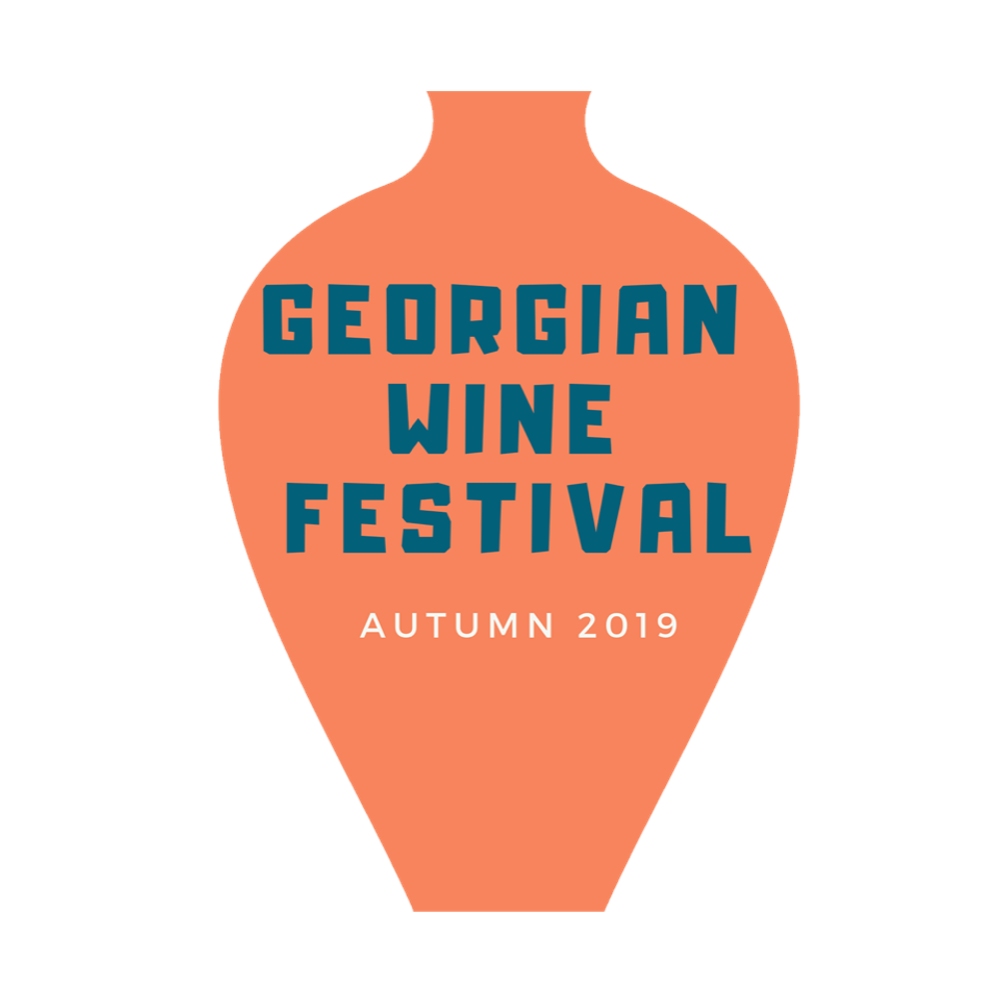
- As part of the festival Wines of Georgia is hosting two trade and press tastings.
- October 2: 12.30pm-4.30pm. SAMA Bankside, 3 Robinson Road SE1 8BU. Featuring a special Masterclass with Sarah Abbott MW from 10.30pm – 12.00pm. The chance to taste wines from over 20 Georgian wine producers, including wines already imported into the UK and producers looking to start.
- October 8: 1.30pm-4.30pmVin-yard, Hatch MCR, Oxford road, Manchester M1 7ED. Special Masterclass with Sarah Abbott MW from 12.30pm to 1.30pm.
More details will be released on www.georgianwine.uk and to take part contact Madeleine Waters on madeleine@swirlwinegroup.com.
